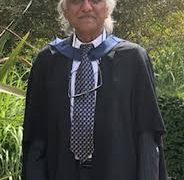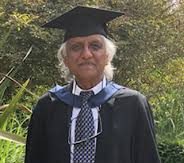Late President Jimmy Carter will have a state funeral on Thursday in Washington before internment of his remains in Georgia next to his wife. The Carter Center he founded is credited for restoration of democracy 1992 and change in government in Guyana after every observer mission. He undertook multiple missions to Guyana. His death does not mean the end of the center’s association with democratic consolidation in Guyana. The center is expected to be involved in the 2025 elections under the aegis of his grandson Jason who is a respected former politician having served in Georgia legislature and made a failed run for Governor as the nominee of the Democratic Party.
I met Jason Carter in Guyana at Pegasus, Marriott, and Cara Lodge at conferences preceding the 2020 election and daily thereafter during attempts at rigging. He jointly held press conferences with co-leader of the Carter Observer Mission Mrs Aminata Touré, the former PM of Senegal. Carter had not come to Guyana but was kept abreast of happenings by Jason, Chair of the Center. Jason and Ms Touré and members of their team were also present at the Ashmin counting center and GECOM headquarter during the attempts to rig the election. Both were very approachable and had no security. They were very warm and pleasant in their exchanges with reporters. They engaged anyone who approached them. I remember meeting Commonwealth election experts Dr Zaidi and Mr Afari of Ghana with them and with other observer missions at Cara Lodge expressing concerns about the attempted fraud.
Jason and Touré were quite disturbed and perturbed and expressed outrage of the attempts at rigging. In a side meet, I asked Ms Touré about her experience in Guyana; she responded that Guyanese were very friendly and respectful to the team but that she was disappointed with the behavior of the government. Similarly, Jason told me he was disappointed and displeased with attempt to defraud the voters and promised that rigging would not be allowed to stand. I could see disappointment and rage in his face and behavior as well as in hers. They both said they had never experienced anything like what occurred in Guyana in their years of experience at elections.
The Carter Center through its report to Washington helped to bring about the change on August 2. The Center led by Carter also played a critical role in the change of government in 2015 although he left prematurely a day before the election. He also led the mission to the 1992 elections. It was shocking, therefore, to Jason that an attempt was made to reject the will of the voters.
I am reminded friends that every time the Center observed elections in Guyana there was a change in government — 1992, 2015, and 2020. Several queried whether the Center will be involved in the 2025 elections. The Center has not officially announced that it will observe this year’s elections, but reliable sources informed me there will be a presence very soon. Washington is likely to fund it in support of a policy to promote democracy worldwide.
With the Center’s presence, will there be a change in government in 2025? Will the pattern or trend of previous Carter involvements hold? The conditions that existed in 1992, 2015, and 2020 are not fortuitous at this moment to bring about political change. People were fed up with the mis-governance and corruption in earlier elections observed by the center, and opposition forces were united to force political change. In 2025, opposition forces are not united so far, and there is no credible viable alternative and a transformational leader who can instill confidence in people to break away from traditional race voting. PPP has made gains among Africans, Mixed, and Amerindians, and has corralled the Venezuelan vote. Aubrey Norton has limited support in the PNC base and no cross over appeal among Indians and Mixed. Nigel Hughes of AFC has appeal among the disgruntled PNC supporters. It will be a close contest between the two for the opposition vote. If the two parties come together under a respected, likable, charismatic, acceptable leader, they will be a strong force as in 2015 and 2020.
Outside of PNC and AFC, no credible potential political figure has expressed an interest to lead a “third force”. And among the various small opposition forces, none of whom can win a seat, is any interest shown to unite to aggregate enough support for a seat. Thus far, only Glenn Lall, Azruddin Mohamed, and Chris Ram have good traction among voters that can lead a movement to win seats. But none of them has showed their hands in leading a movement. Disgruntled lower class voters and some others hope that Glenn Lall and Azruddin enter the fray. And middle class voters and elements in the business community hope Chris Ram or some other credible person of integrity and scholarship comes forward. Azruddin is portrayed as a populist who aid people in distress. His philanthropic kindness, like that of Glenn’s, is much appreciated, but can it translate into votes? Glenn Lall runs a free press that even publishes critiques of him and his media house. He also daily criticizes the government and opposition on its handling of the Exxon contract. Can it translate into votes in a racially polarized electorate against an incumbent party flush with state funds? Ram is one of the country’s leading thinker, lawyer, accountant, and columnist with hardly any comparison. He is widely respected by the middle and professional classes. Can Ram’s integrity, patriotism, scholarship, and nationalism win votes? Can they all compete against President Irfaan who has presented himself as a populist and who is doling out handouts all over the country.
With the preceding figures not taking an electoral leap and with limited options currently available to voters, the status quo will hold. The trend of the presence of Carter Center in Guyana of bringing political change may face a jinx this time around.


































































